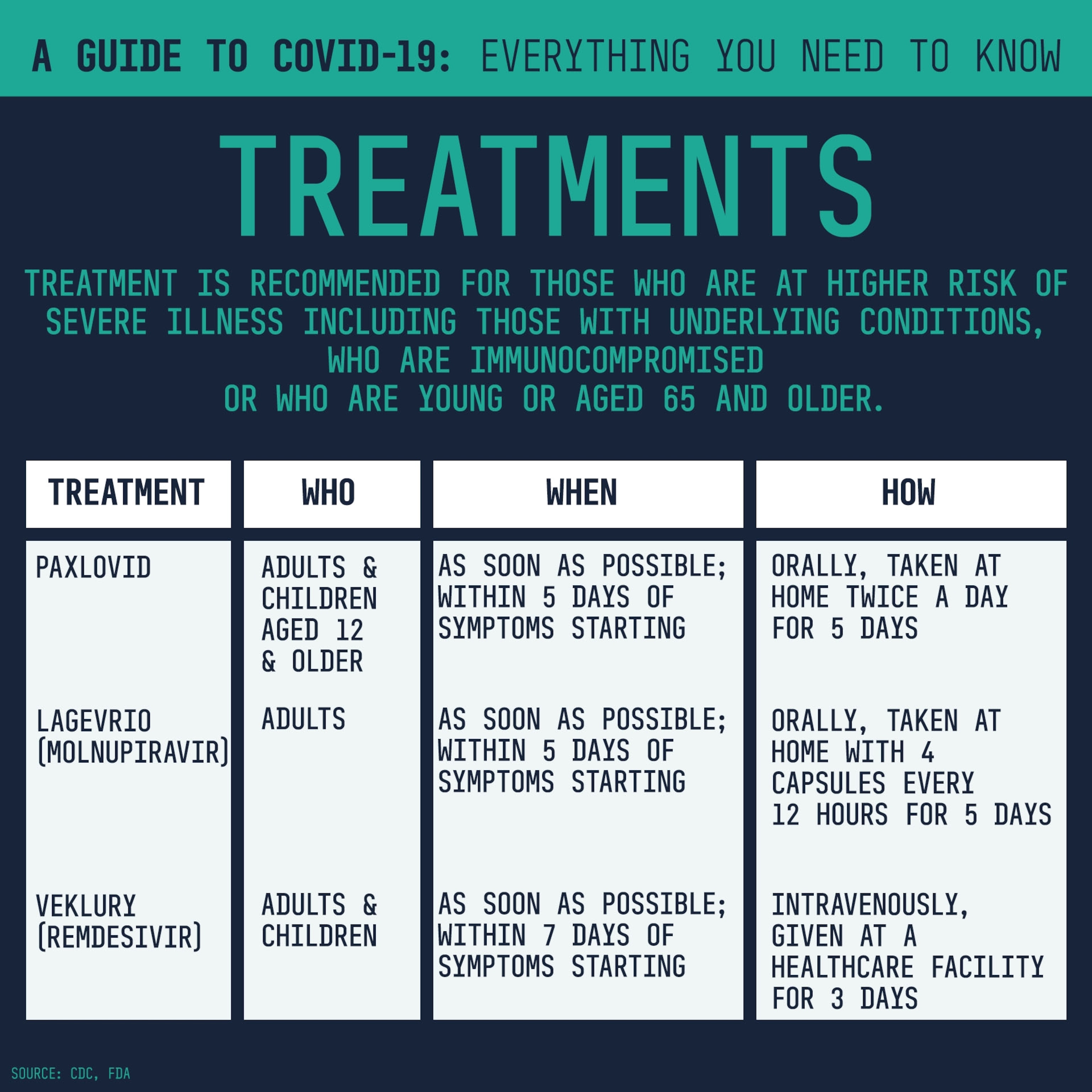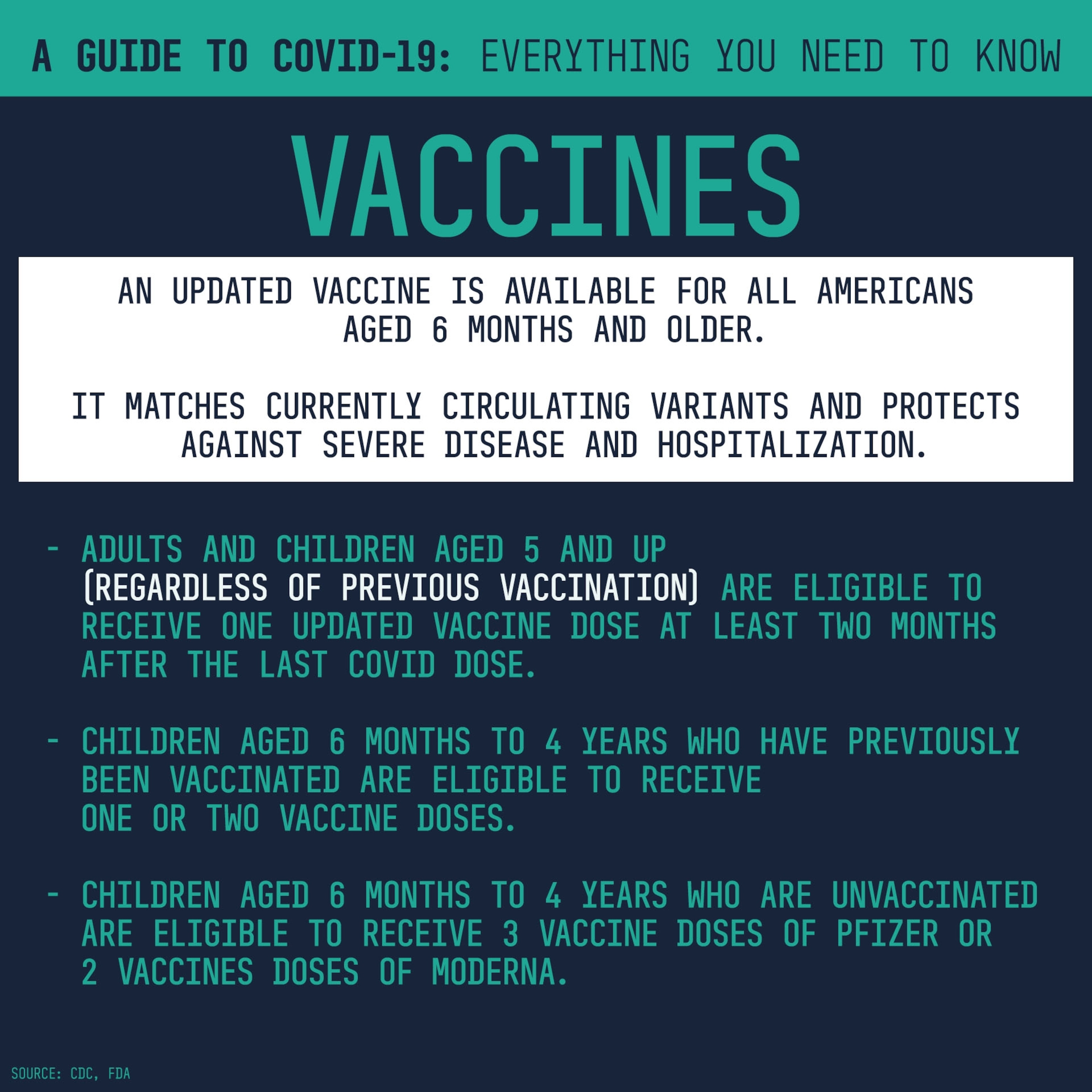COVID guide: What to know about symptoms, testing, treatment and vaccines
An updated vaccine is being rolled out to protect against newer variants.
As COVID-19 cases and hospitalizations rise across the United States and a new updated vaccine becomes available, many have questions on how to best keep their families safe.
Much has changed over the last three years including testing, treatment availability and even who is eligible for vaccines.
"Over the last several years, the fall and early winter seems to be the time when COVID has a tendency to have a larger surge and we're kind of entering that right now," Dr. Frank Esper, a physician in the center for pediatric infectious diseases at the Cleveland Clinic, told ABC News. "We are seeing an uptick in COVID at this time, and we don't know if this is going to be a minor blip or a major surge."
So what might your symptoms look like? How do you interpret test results? Here's everything you need to know about COVID at this point.
What symptoms might COVID cause?
Symptoms can range from mild to severe and appear between two and 14 days after being exposed to COVID, according to the Centers for Disease Control and Prevention.
They are wide-ranging and can include fever or chills, coughing, shortness of breath, fatigue, headaches, muscle aches, body aches, sore throat, runny nose, sudden loss of taste and smell, nausea, vomiting and diarrhea.
However, this list is not exhaustive, according to the CDC. Symptoms may change with new variants or depending on vaccination status.
What testing is available?
There are two types of tests available: polymerase chain reaction (PCR) tests and rapid at-home antigen tests.
PCR tests, usually available in hospitals and doctors' offices, look for genetic material from the virus and take several days to return results.

Meanwhile, at-home tests look for antigens, or proteins from the virus. They are readily available -- and the most used at this point -- and can typically return results within 15 minutes.
Public health experts and the CDC say you should test right away If you are experiencing symptoms or five full days after you last interacted with someone who tests positive.
"I would suggest that if people are worried about having COVID, then the best way to make use of [the at-home tests] is to use them before you go into an environment where you really would not want to introduce the virus," Dr. Bill Hanage, an associate professor of epidemiology at Harvard T.H. Chan School of Public Health, told ABC News. "And that could be if you're visiting grandparents or people who are otherwise sick."
If a box of tests indicates the expiration date has passed, experts say to check the lot number on the FDA website before throwing the box away because the date may have been extended by the federal government.
How do I interpret my test results?
If you are positive, the CDC recommends you stay home and isolate for at least five days. Isolation can end if there are no symptoms, symptoms are improving or if you are fever-free for 24 hours without medication.
If you test negative and you have symptoms, the CDC recommends testing again 48 hours later. If you test negative and don't have symptoms, it's recommended to test 48 hours after the first negative test and then 48 hours after the second negative test.
The CDC also recommends wearing a mask for 11 days when indoors and around other people aftering testing positve and for 10 days if you were exposed to COVID.
You can use the CDC's calculator to figure out how long you need to quarantine or isolate for.
Additionally, experts say that people should avoid spreading a virus around even if it isn't COVID.
"So, if you test negative, but you're just feeling like you're infected, you know that you've got a cold or a flu, you should still act as if you are infectious with something, even if it isn't COVID, because you don't want that virus spreading around," Esper said.
What treatments are available?
Treatment is currently recommended for those are at higher risk of severe illness including those with underlying conditions, who are immunocompromised or who are young or aged 65 and older.

"I think your run-of-the-mill young, healthy person who has symptoms, for the most part, will be able to, to weather the storm of COVID with just over-the-counter fever-reducing medicines, nasal congestion, and so on," Dr. John Coleman, a pulmonary and critical care specialist at Northwestern Medicine, told ABC News.
There are three treatments commonly available. Paxlovid and Lagevrio (molnupiravir) are oral medications taken at home for five days while Veklury (remdesivir) is an intravenous mediation given a health facility for three days.
Experts recommend getting the treatment as soon as possible because it is most effective when taken early. For Paxlovid and Lagevrio, the CDC recommends within five days of symptoms starting and for Veklury, the CDC recommends seven days.
Can I get the updated vaccine?
The FDA has approved and authorized an updated vaccine for all Americans aged 6 months and older, which was then recommended by the CDC.
Experts say it more closely matches currently circulating variants and protects against severe disease and hospitalization.

For adults and children aged 5 and up -- regardless of previous vaccination-- are eligible to receive one updated vaccine dose at least two months after the last COVID dose.
For children aged 6 months to 4 years who have previously been vaccinated, they are eligible to receive one or two vaccine doses. For the same group that is unvaccinated, they are eligible to receive three vaccine doses of Pfizer or two vaccines doses of Moderna.
Dr. Otto Yang, an infectious disease physician-scientist at UCLA Health, told ABC News that he recommends people get the updated vaccine to also prevent long-term complications including blood clots and long COVID, because they can occur even when a person has mild symptoms.
"[The vaccine is] not just limited to preventing you from dying," Yang said. "So, people, will look at it and say, 'Well, you know, I'm young, I'm healthy, and I've already had COVID, I should have immunity, I'm definitely not going to die from this. I didn't die before.' But on the other hand, there's much more to COVID than just death."




